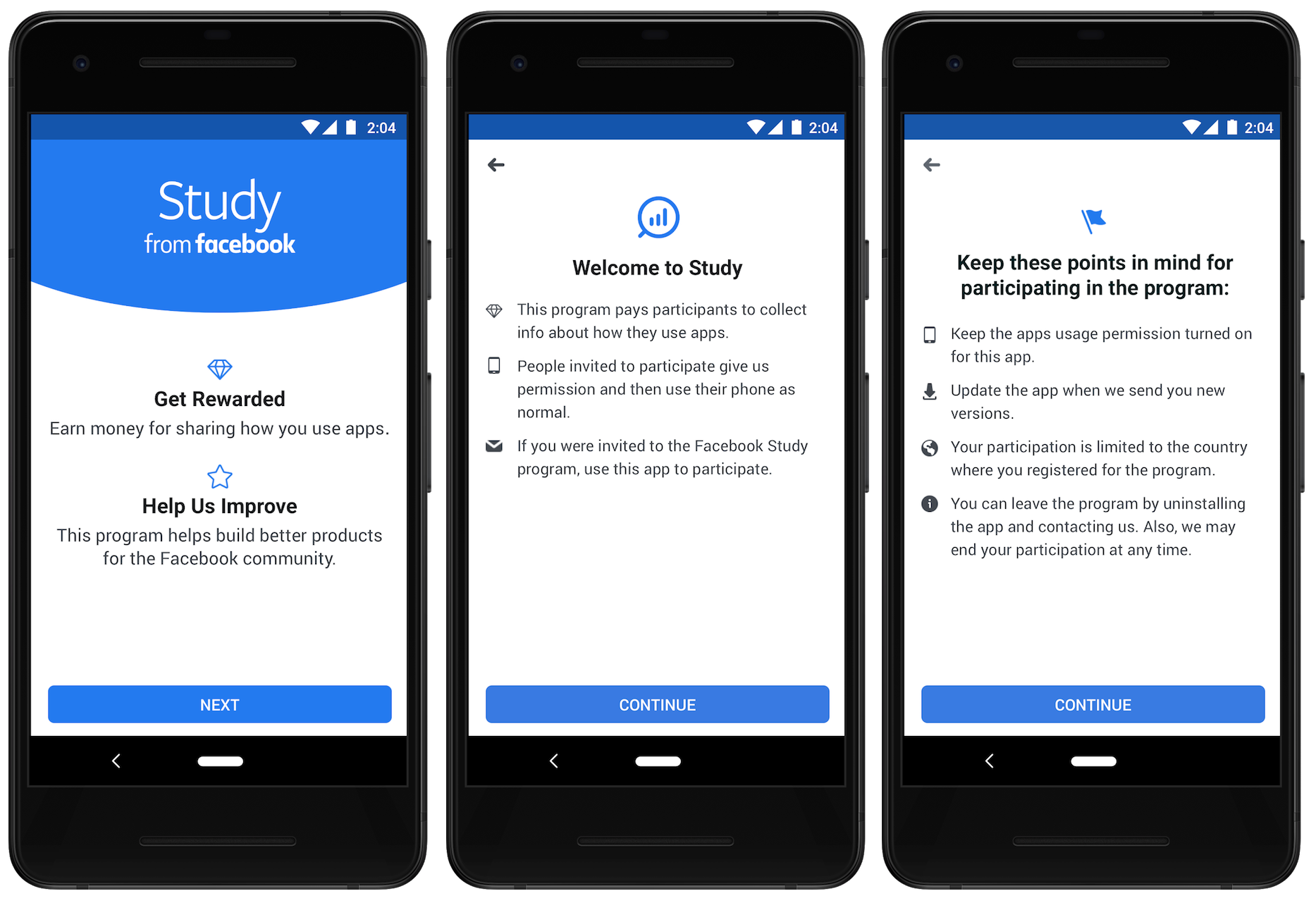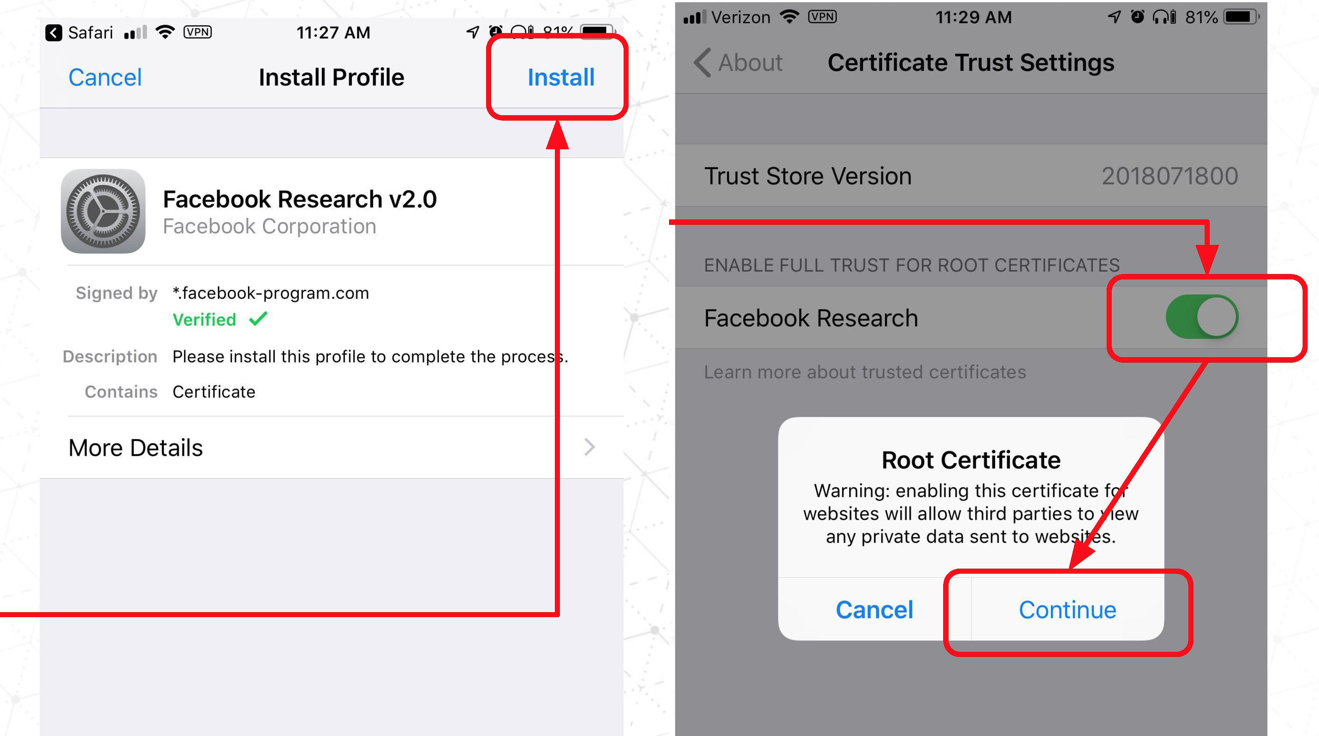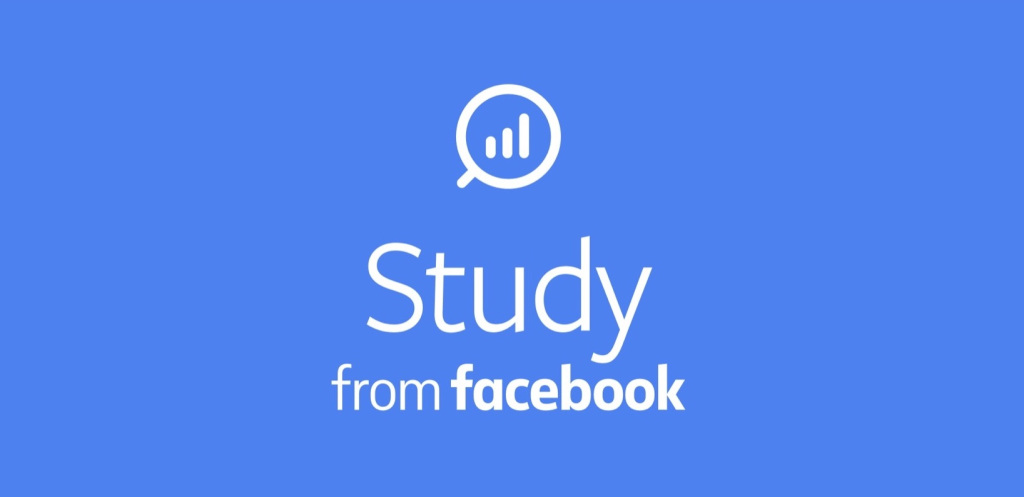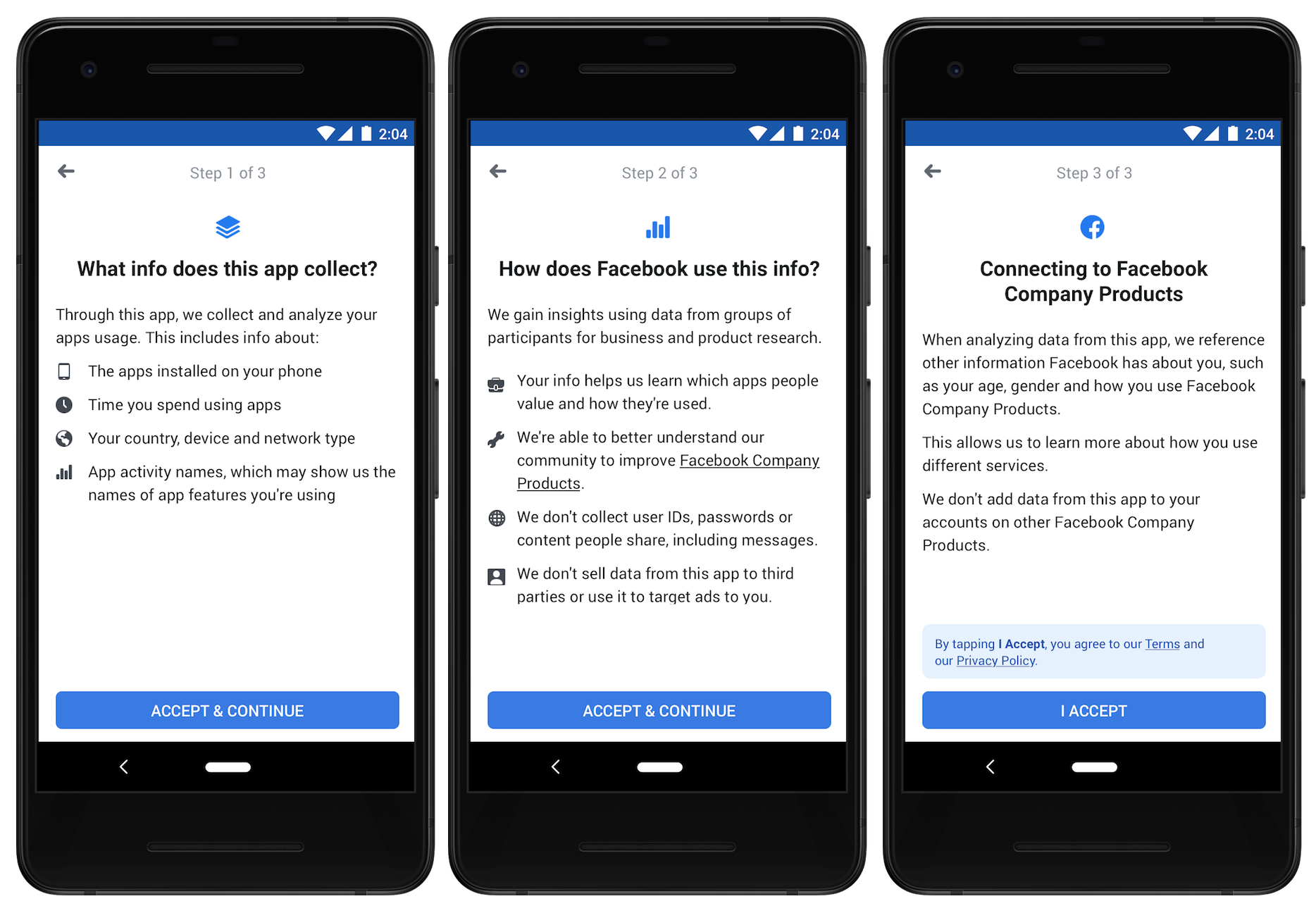Facebook shut down its Research and Onavo programs after TechCrunch exposed how the company paid teenagers for root access to their phones to gain market data on competitors. Now Facebook is relaunching its paid market research program, but this time with principles — namely transparency, fair compensation and safety. The goal? To find out which other competing apps and features Facebook should buy, copy or ignore.
Today Facebook releases its “Study from Facebook” app for Android only. Some adults 18+ in the U.S. and India will be recruited by ads on and off Facebook to willingly sign up to let Facebook collect extra data from them in exchange for a monthly payment. They’ll be warned that Facebook will gather which apps are on their phone, how much time they spend using those apps, the app activity names of features they use in other apps, plus their country, device and network type.

Facebook promises it won’t snoop on user IDs, passwords or any of participants’ content, including photos, videos or messages. It won’t sell participants’ info to third parties, use it to target ads or add it to their account or the behavior profiles the company keeps on each user. Yet while Facebook writes that “transparency” is a major part of “Approaching market research in a responsible way,” it refuses to tell us how much participants will be paid.
“Study from Facebook” could give the company critical insights for shaping its product roadmap. If it learns everyone is using screensharing social network Squad, maybe it will add its own screensharing feature. If it finds group video chat app Houseparty is on the decline, it might not worry about cloning that functionality. Or if it finds Snapchat’s Discover mobile TV shows are retaining users for a ton of time, it might amp up teen marketing of Facebook Watch. But it also might rile up regulators and politicians who already see it as beating back competition through acquisitions and feature cloning.
An attempt to be less creepy
TechCrunch’s investigation from January revealed that Facebook had been quietly operating a research program codenamed Atlas that paid users ages 13 to 35 up to $20 per month in gift cards in exchange for root access to their phone so it could gather all their data for competitive analysis. That included everything the Study app grabs, but also their web browsing activity, and even encrypted information, as the app required users to install a VPN that routed all their data through Facebook. It even had the means to collect private messages and content shared — potentially including data owned by their friends.
Facebook’s Research app also abused Apple’s enterprise certificate program designed for distributing internal use-only apps to employees without the App Store or Apple’s approval. Facebook originally claimed it obeyed Apple’s rules, but Apple quickly disabled Facebook’s Research app and also shut down its enterprise certificate, temporarily breaking Facebook’s internal test builds of its public apps, as well as the shuttle times and lunch menu apps employees rely on.
In the aftermath of our investigation, Facebook shut down its Research program. It then also announced in February that it would shut down its Onavo Protect app on Android, which branded itself as a privacy app providing a free VPN instead of paying users while it collected tons of data on them. After giving users until May 9th to find a replacement VPN, the Onavo Protect was killed off.

This was an embarrassing string of events that stemmed from unprincipled user research. Now Facebook is trying to correct its course and revive its paid data collection program but with more scruples.
How Study from Facebook works
Unlike Onavo or Facebook Research, users can’t freely sign up for Study. They have to be recruited through ads Facebook will show on its own app and others to both 18+ Facebook users and non-users in the U.S. and India. That should keep out grifters and make sure the studies stay representative of Facebook’s user base. Eventually, Facebook plans to extend the program to other countries.
If users click through the ad, they’ll be brought to Facebook’s research operations partner Applause’s website, which clearly identifies Facebook’s involvement, unlike Facebook Research, which hid that fact until users were fully registered. There they’ll be informed how the Study app is opt-in, what data they’ll give up in exchange for what compensation and that they can opt out at any time. They’ll need to confirm their age, have a PayPal account (which are only supposed to be available to users 18 and over) and Facebook will cross-check the age to make sure it matches the person’s Facebook profile, if they have one. They won’t have to sign and NDA like with the Facebook Research program.

Anyone can download the Study from Facebook app from Google Play, but only those who’ve been approved through Applause will be able to log in and unlock the app. It will again explain what Facebook will collect, and ask for data permissions. The app will send periodic notifications to users reminding them they’re selling their data to Facebook and offering them an opt-out. Study from Facebook will use standard Google-approved APIs and won’t use a VPN, SSL bumping, root access, enterprise certificates or permission profiles you install on your device like the Research program that ruffled feathers.
Different users will be paid the same amount to their PayPal account, but Facebook wouldn’t say how much it’s dealing out, or even whether it was in the ball park of cents, dollars or hundreds of dollars per month. That seems like a stern departure from its stated principle of transparency. This matters, because Facebook earns billions in profit per quarter. It has the cash to potentially offer so much to Study participants that it effectively coerces them to give up their data; $10 to $20 per month like it was paying Research participants seems reasonable in the U.S., but that’s enough money in India to make people act against their better judgement.

The launch shows Facebook’s boldness despite the threat of antitrust regulation focusing on how it has suppressed competition through its acquisitions and copying. Democrat presidential candidates could use Study from Facebook as a talking point, noting how the company’s huge profits earned from its social network domination afford it a way to buy private user data to entrench its lead.
At 15 years old, Facebook is at risk of losing touch with what the next generation wants out of their phones. Rather than trying to guess based on their activity on its own app, it’s putting its huge wallet to work so it can pay for an edge on the competition.































Comment